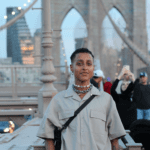
Jules Falavigna
Administrative Assistant, Free Tibet

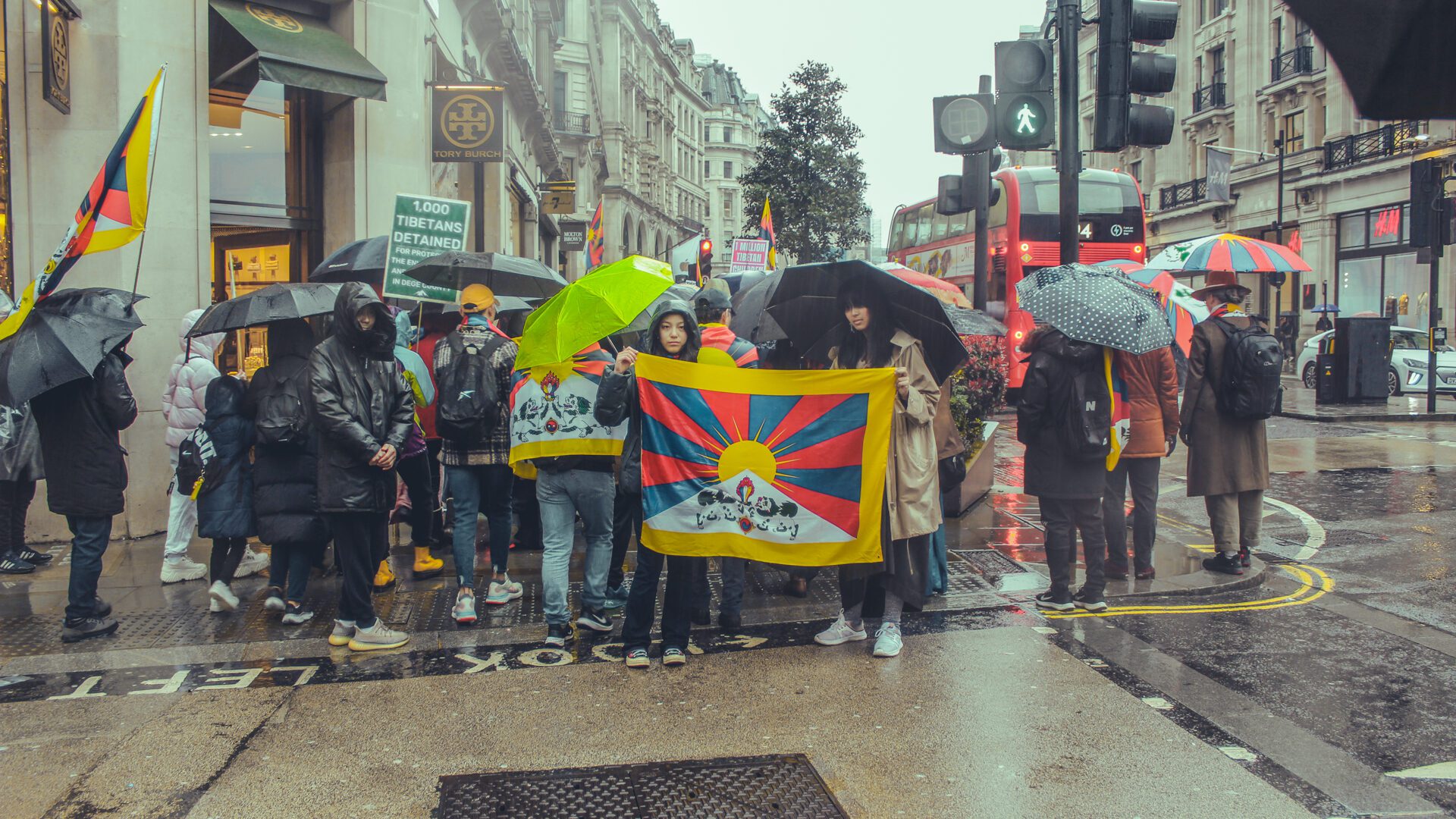
A retrospective on the 10 March protest and celebrations in London from Free Tibet's Jules Falavigna.
On the morning of the 65th commemoration of the Tibetan National Uprising, light drizzle had been falling in London. Despite this, people assembled opposite 10 Downing Street, draped in the bright colours of the Tibetan flag.
In an introductory speech, Damien set the tone for the entire day, speaking loudly with passion and energy, drowning the sounds of Whitehall’s busy roads. Following Damien came the Tibetan National Anthem, a most serene, luminous, and composed melody. It was only at this moment that the number of people in the square became apparent, as the anthem was held by the voice of hundreds of Tibetans facing one another. Following, we were encouraged to join the organisers in a minute of silence in honour and memory of Tibetans who have lost their lives at the hands of the CCP. Next, Sumchu Drenlu, an exhilarating, fast-paced piece, powered by marching drums. Heavy rain began beating down on the pavement and the crowd’s umbrellas. Finally, LongSho, the Tibetan National Uprising song, a patriotic melody with lyrics encouraging Tibetans and the people of the world to rise up for Tibet.
Next, Tenzin Kunga, Advocacy Officer at Free Tibet and Chair of the Tibetan Community in Britain, read out the All-Party Parliamentary Group (APPG) of Tibet’s Solidarity Statement. He recalled Tibet’s status as the least free country in the world, ranked a Global Freedom Score of 0/100 in Freedom House’s 2023 Report. Kunga reiterated the APPG’s commitment to push the UK government to raise Tibet at every human rights discussion with their Chinese counterparts, and follow through on the strong recommendations that the UK issued at the China’s Universal Periodic Review in January. He concluded that Tibetans have been non-violent in resisting China’s occupation for more than 70 years, and that the APPG has a duty to ensure Tibet remains a global concern.
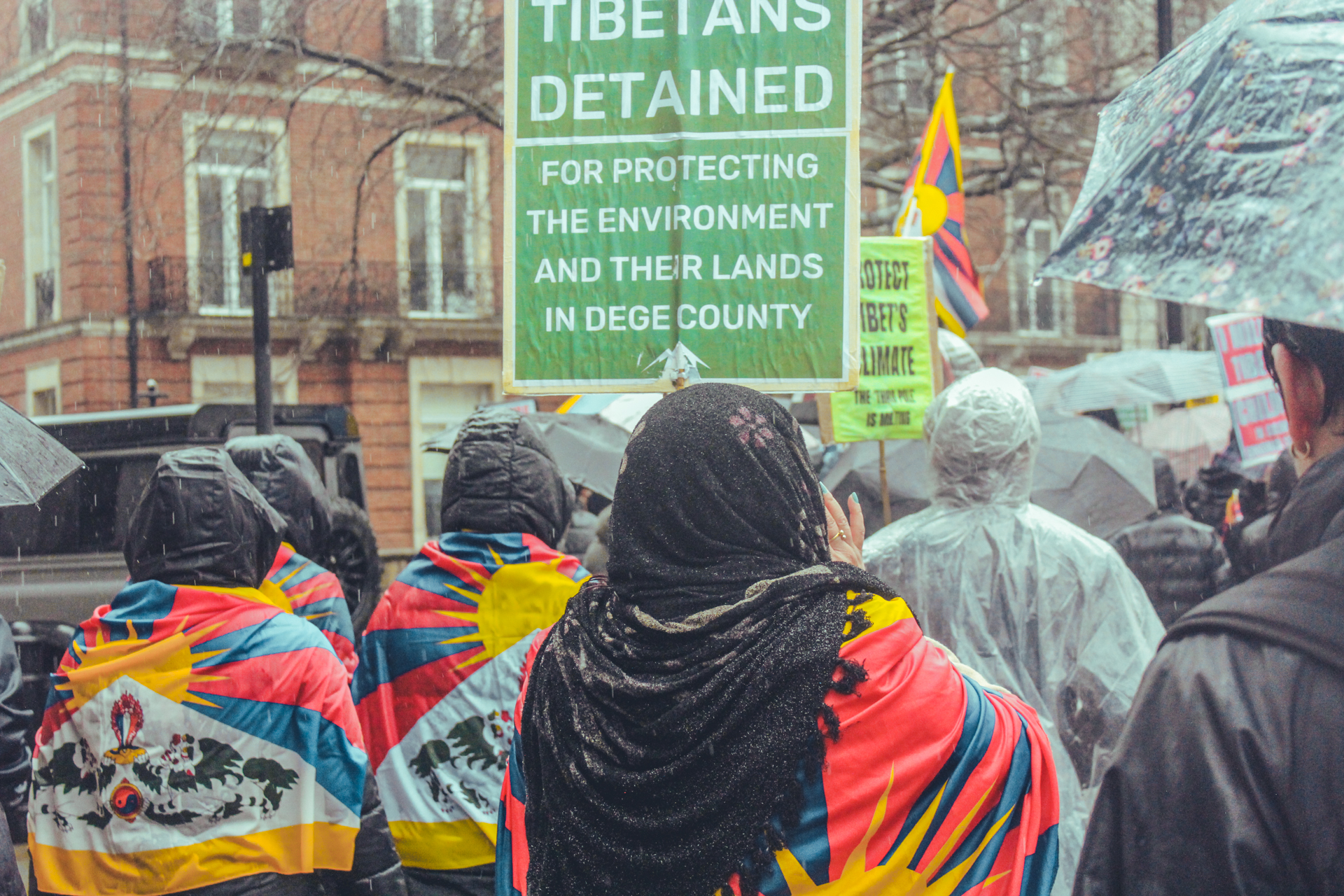
Tenzin Namdrol, 17-year-old speaker from Students for a Free Tibet UK, highlighted Tibet’s colonial boarding schools. He spoke incisively on the threat to Tibet’s language and culture. Further, Namdrol highlighted the mass arrests in Dege County two weeks prior, where over 1,000 peaceful protesters were arrested for advocating for their lands pending the construction of a hydropower dam. “If this dam is built, it will displace thousands of Tibetans, hundreds of families…” he stated, stressing the CCP’s total disregard for Tibetan livelihoods. Namdrol finished with an elated “bo gyal lo!”, meaning “Long Live Tibet!”, which was instantly echoed by the crowd.
Next, Tenzin Rabga Tashi, Digital Officer at Free Tibet, addressed the crowd. He started by saying, “To the world, the 10th of March is a footnote in the book of history. But to us, it is everything”. He expressed his hope that in this life, or the next, we could return to a free Tibet. Rabga reminded the crowd of what the Chinese Communist Party can never take away, which is the resilient spirit of Tibetans. “Tibet’s future rests in the hands of those daring enough to go against the modern superpower. I know it can be frightening, but let us draw inspiration from the courage and resilience of my fellow Tibetans”. Finally, he voiced that the Tibetan struggle is not just a Tibetan one, but a global struggle for the soul of humanity.
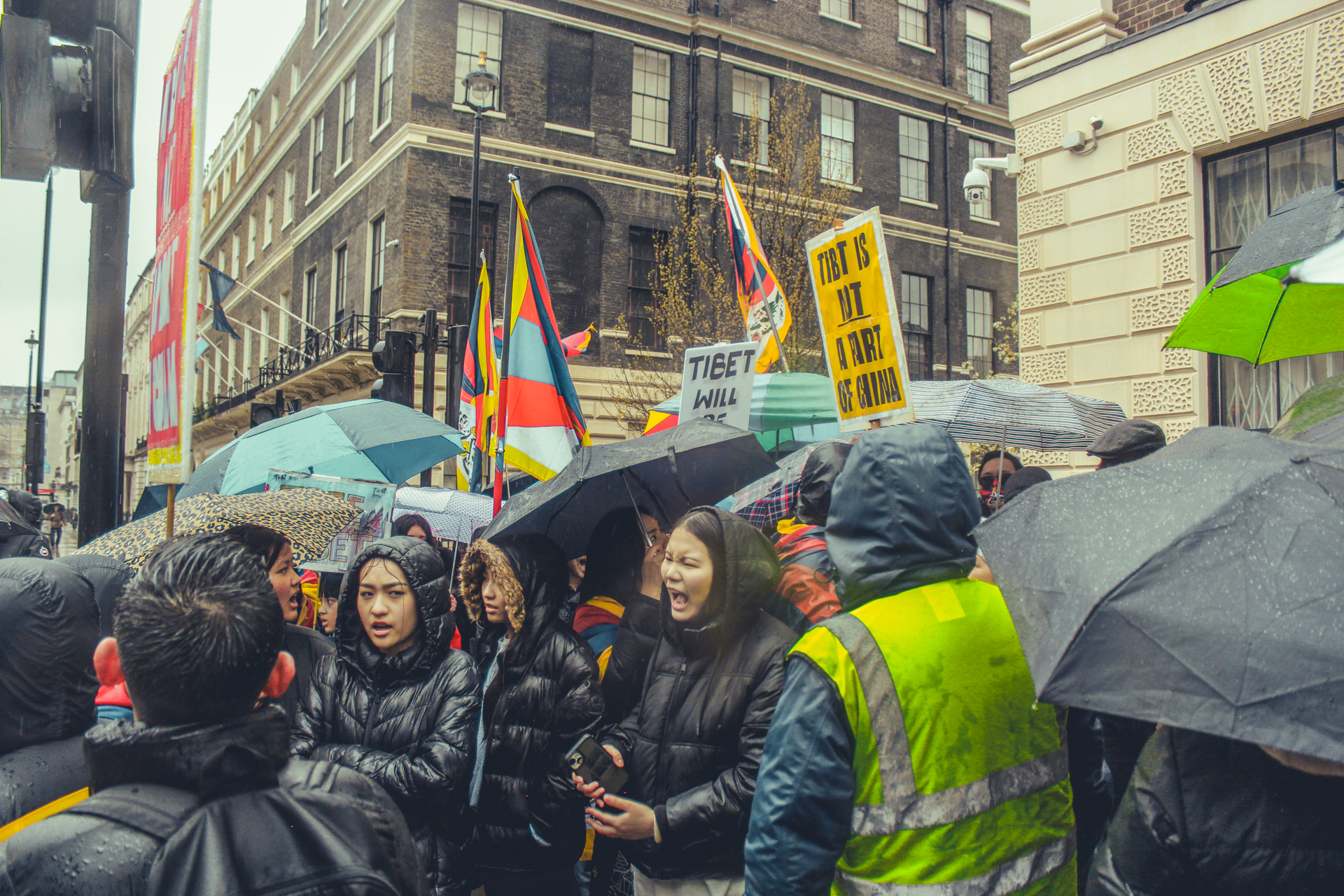
The crowd then erupted into chanting. Protestors in unison shouted, “Release, Release, The Panchen Lama“, “Stop The Killing In Tibet” and “End The Colonial Boarding Schools In Tibet“. A new addition to sloganeering this year was “Tibetans In Dege, We Are With You” drawing attention to the mass arrests in Dege County two weeks prior. As we were encouraged to now face Downing Street, the speaker exclaimed “Rishi Sunak,” and the crowd replied “Shame On You!”.
The crowd commenced the march towards the Chinese Embassy. As protesters poured down the streets of central London, cars and onlookers paused to take pictures. Young Tibetans handed out flyers to the public. The march was emboldened by call and response chanting, and the harmonic drumming of the rain against umbrellas and concrete. Our colourful crowd began stretching down Whitehall Road towards Trafalgar Square in an impressive scene. Only once we reached the corner of Piccadilly Circus could we see the true scale of the demonstration, with our crowd spanning almost from Pall Mall right the way up to Regent’s Street.
Once we reached the Chinese Embassy, we faced security at the front of the building for a brief moment, as protesters chanting grew emphatic. However, after only a few minutes, our numbers grew too powerful, and we were instructed to cross the street. Kunga reiterated the APPG commitment for all those that joined us along the way. The Tibetan National Anthem was repeated, followed by another moment of silence. Longsho was performed again, more fierce than the last.
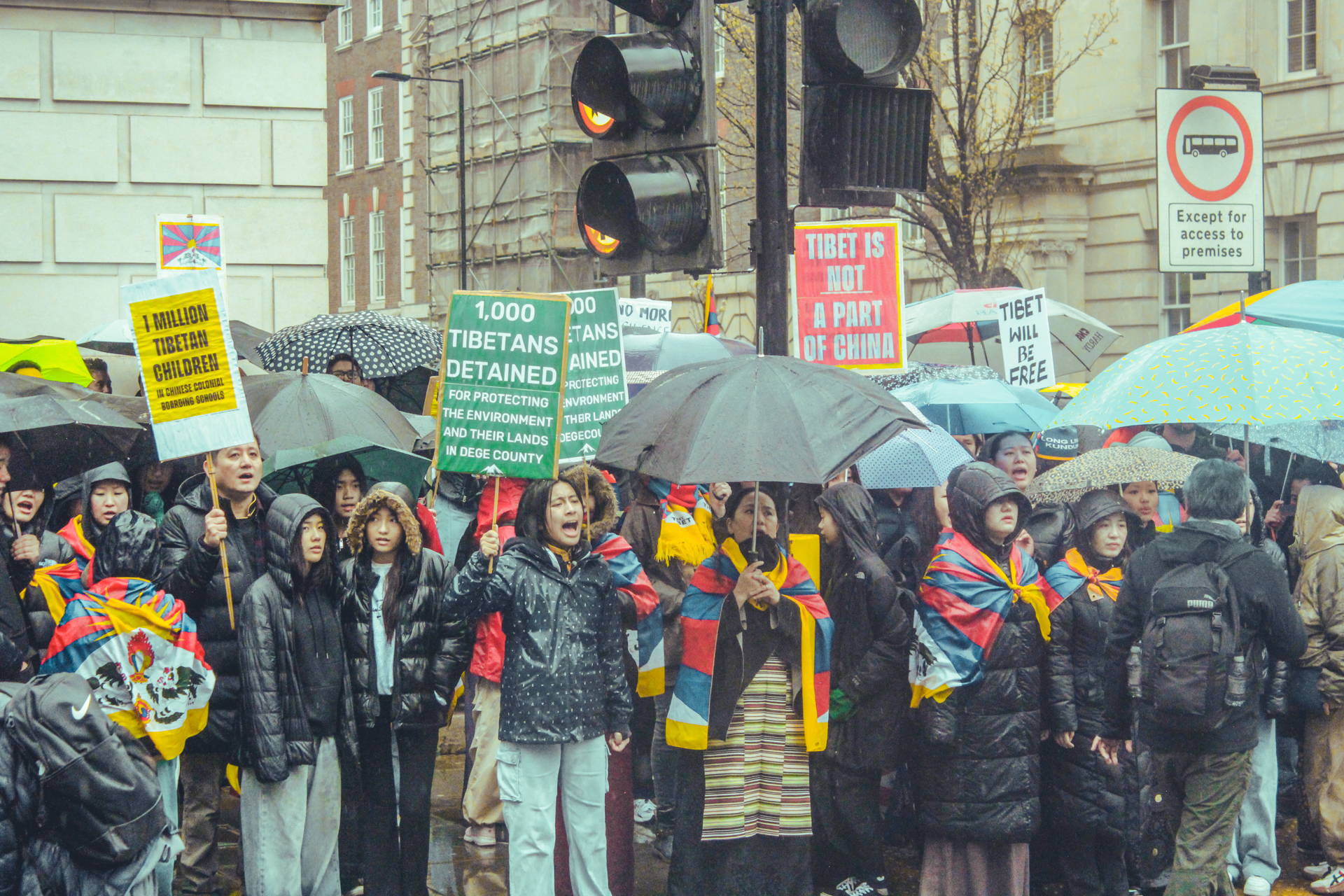
Following, a speaker, Dr Tara spoke on the suffering entire generations of her family endured: how one day, when she returns to her homeland, it won’t be the same beautiful land her grandparents nurtured and protected, as a result of the wide-scale forced relocations of Tibetans. Dr Shao Jiang, committed activist-scholar, and a former prisoner of conscience for his active role in the 1989 pro-democracy movement in China then gave a rousing speech. This was followed by allies from across multiple movements, amongst them; Mara, Director and Chair of UK Uyghur Community, and Finn Lau, Political Activist and Founder of Hong Kong Liberty.
Protestors were welcomed at the Indian YMCA for more speeches, performances and hot food. The smell of momo (Tibetan dumplings) made by community members had filled the room upon our arrival, and with it, guests from the community, many dressed in traditional Tibetan chubas, quickly followed suit. The venue was now brimming with guests, including a substantial number of families, and generations of Tibetans. Tenzin Tsomo, age 9, frequented the Free Tibet stand throughout the ceremony, expressing her excitement for being able to perform on stage alongside her family. When asked whether she was nervous to get on stage, she confidently disagreed, highlighting the importance of speaking your mind and using your voice. She was a beautiful representation of the future of Tibet, and that the honouring Tibetan culture and heritage was alive, and prospering. In that moment, Tsomo became a representation of the strength and survival of Tibetan culture in exile, and emblem of how ready young Tibetans are to take up the mantle, with an enduring love and pride for a homeland that has always been estranged but will one day be free.
Kunga began the ceremony with another recital of the Tibetan National Anthem and a minute of silence, followed by Sumchu Drenlu. Following, Sonam Tsering Frasi, Representative of the Dalai Lama and the Office of Tibet, London, spoke to the younger generations of Tibetans present on the tremendous loss of Tibetan life and dignity before them. He stressed the importance of social, cultural and linguistic distinction between China and Tibet – that Tibet has never been or will ever be a part of China, despite China’s colonial attitude and chauvinism. He states, “China’s illegal rule over Tibet is both colonialist and imperialist by nature”.
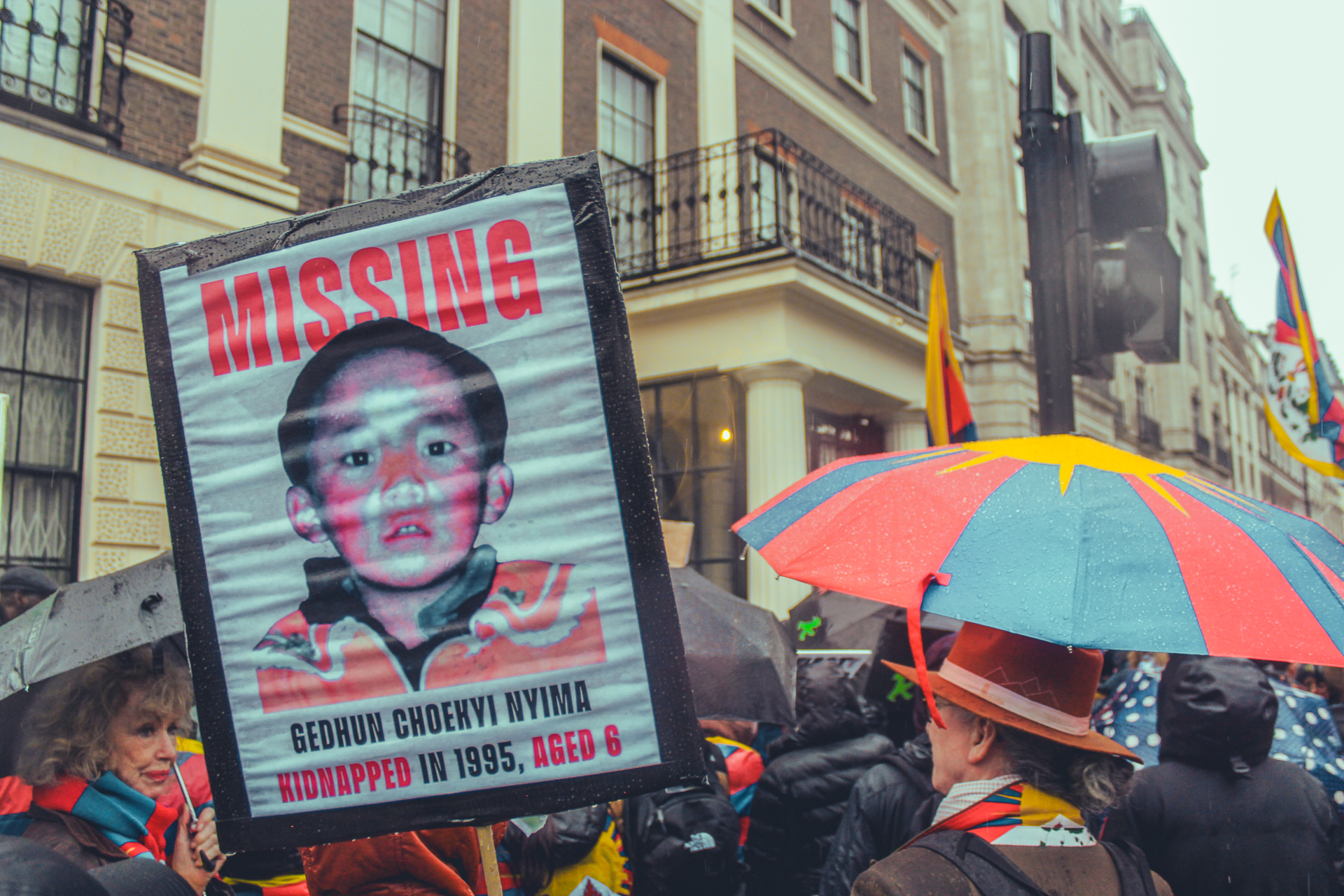
We then had more speeches from scholars in solidarity with Tibet. Professor Dibyesh Anand spoke on his commitments to the Tibetan cause as a long-time supporter through reciting a brief encounter he had with His Holiness the Dalai Lama. He stated that in only five minutes with His Holiness, he had never seen such non-hatred or vengeance against Chinese people, and that His Holiness further affirmed that China’s oppression over Tibet is about a system, not a people. Professor Carole McGranaham highlighted that for the first time in Tibetan studies in the United States, non-Tibetans are taking a backseat, and young Tibetans are the ones leading and changing the field in important ways. She spoke on the importance of remembrance of historical events as not just about government and systems, but about honouring ordinary people’s stories, leaving the crowd with a quote from an interview with a Tibetan in her book, Arrested Histories: “Without knowledge you can only fight for small things”. She finished her speech with “bo kyi tag par bo mi red!”, meaning, “Tibet belongs to Tibetans, always!”.
The final speaker, Benedict Rogers, founder of Hong Kong Watch and Deputy Chair of the Conservative Party Human Rights Commission (CPHRC) then upheld the great similarities between the suppression faced by Hong Kongers and Tibetans alike. He stated, “Tibet has been a laboratory for surveillance and religious suppression”, expressing that the cultural linguistic forced assimilation experienced by Tibetans for 75 years is now being rolled out to other areas in different forms. He affirmed the importance of March 10th, this year and every year, and said that the words Free Tibet are engraved into his heart.
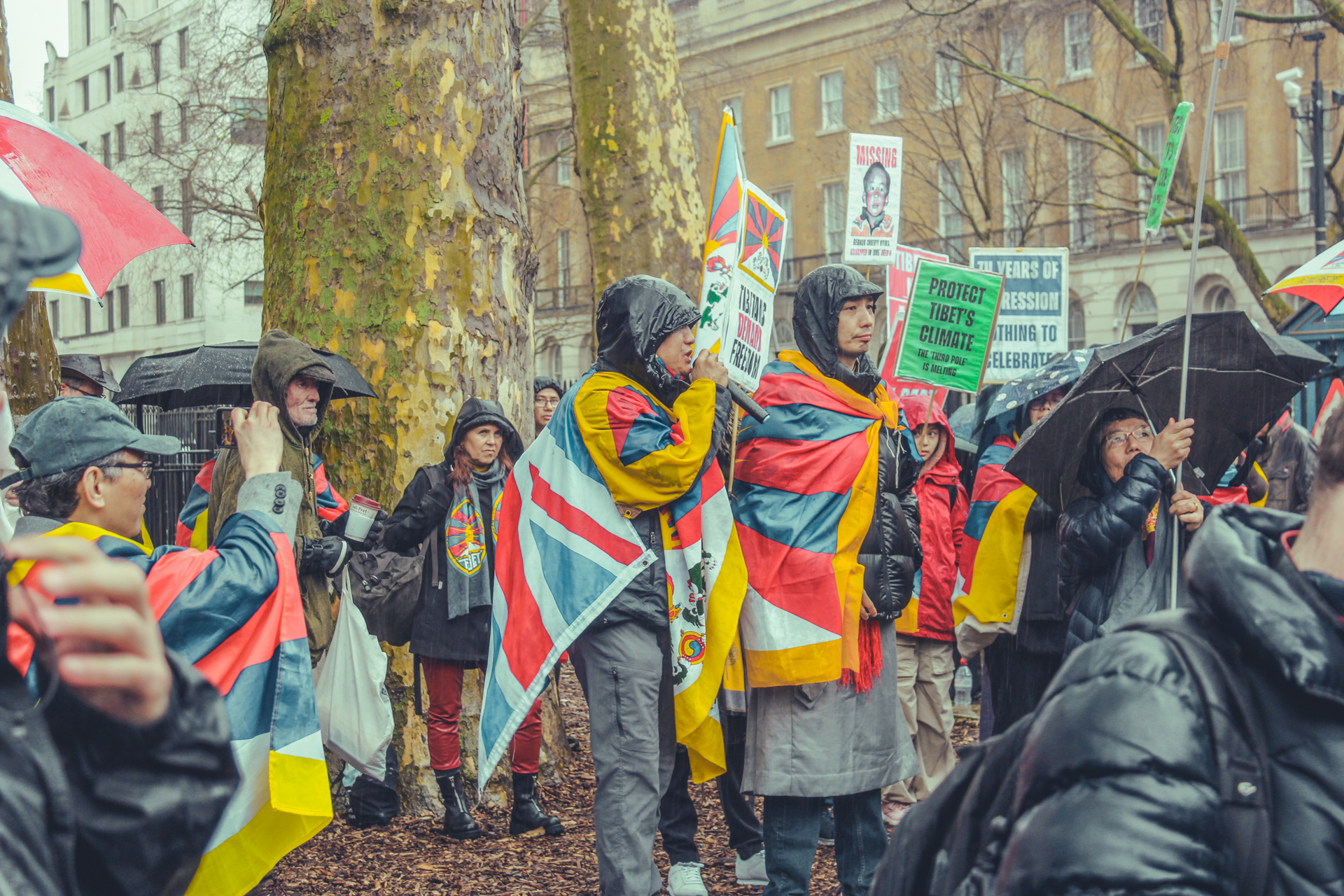
The ceremony ended with a heartwarming performance of “Tears of Separation” by a Tibetan family from Bristol, father Tashi, mother Sanmo, daughter Dechen, and 9-year old Tenzin Tsomo. Tashi also performed “Black Hat” by Lhundrub Drakpa, the popular Tibetan musician and activist who was arrested, beaten, imprisoned and whose whereabouts is still unknown. Tibetan young people held placards of Lhundrub Drakpa as Tashi delivered an emotional performance.
Tenzin Kunga concluded the commemoration with a thank you to all guests, speakers and organisations present. It was the end of another empowered Tibetan Uprising Day in London, with equal parts grief and hope, and prosperity.

Jules Falavigna
Administrative Assistant, Free Tibet
